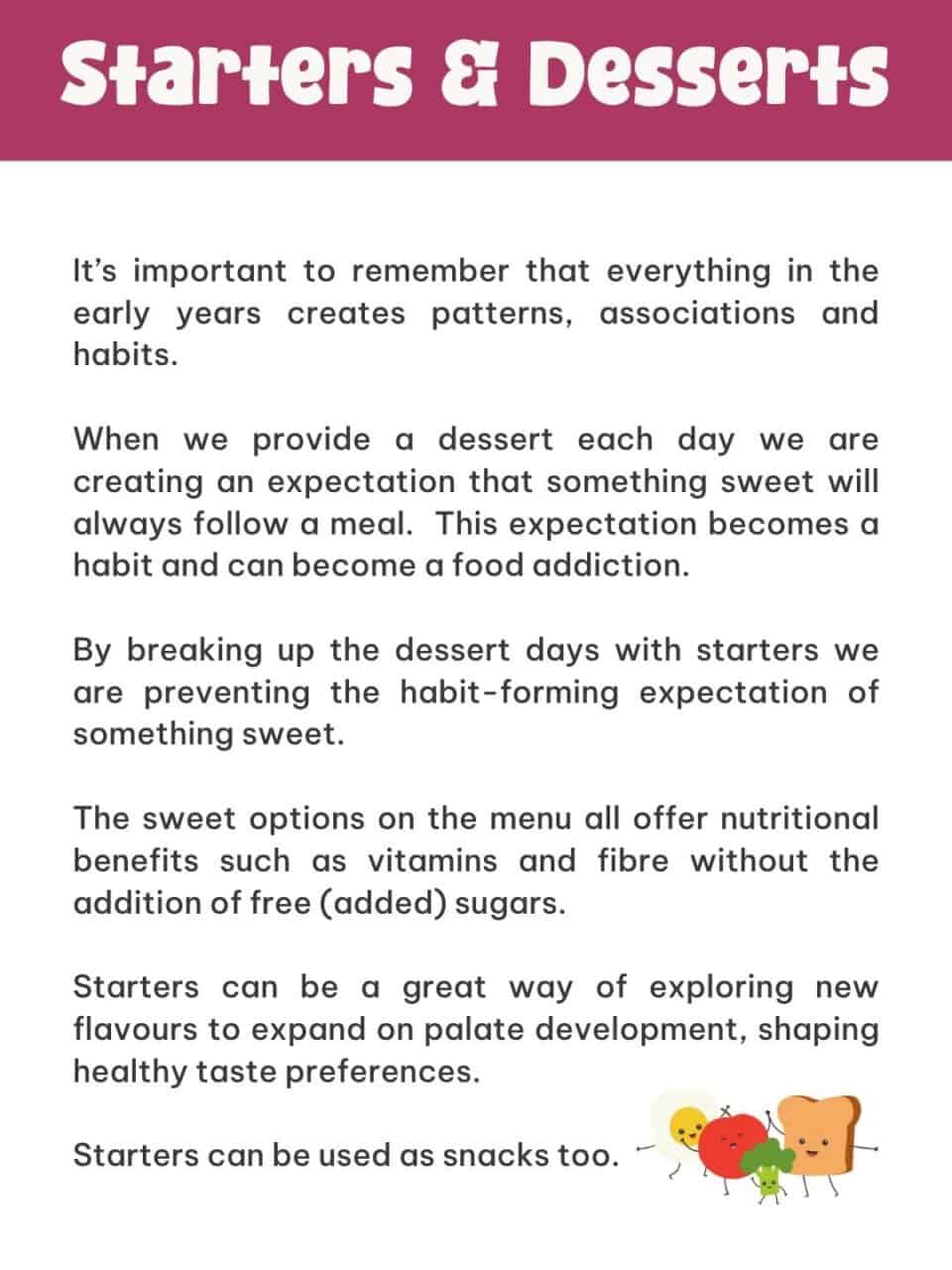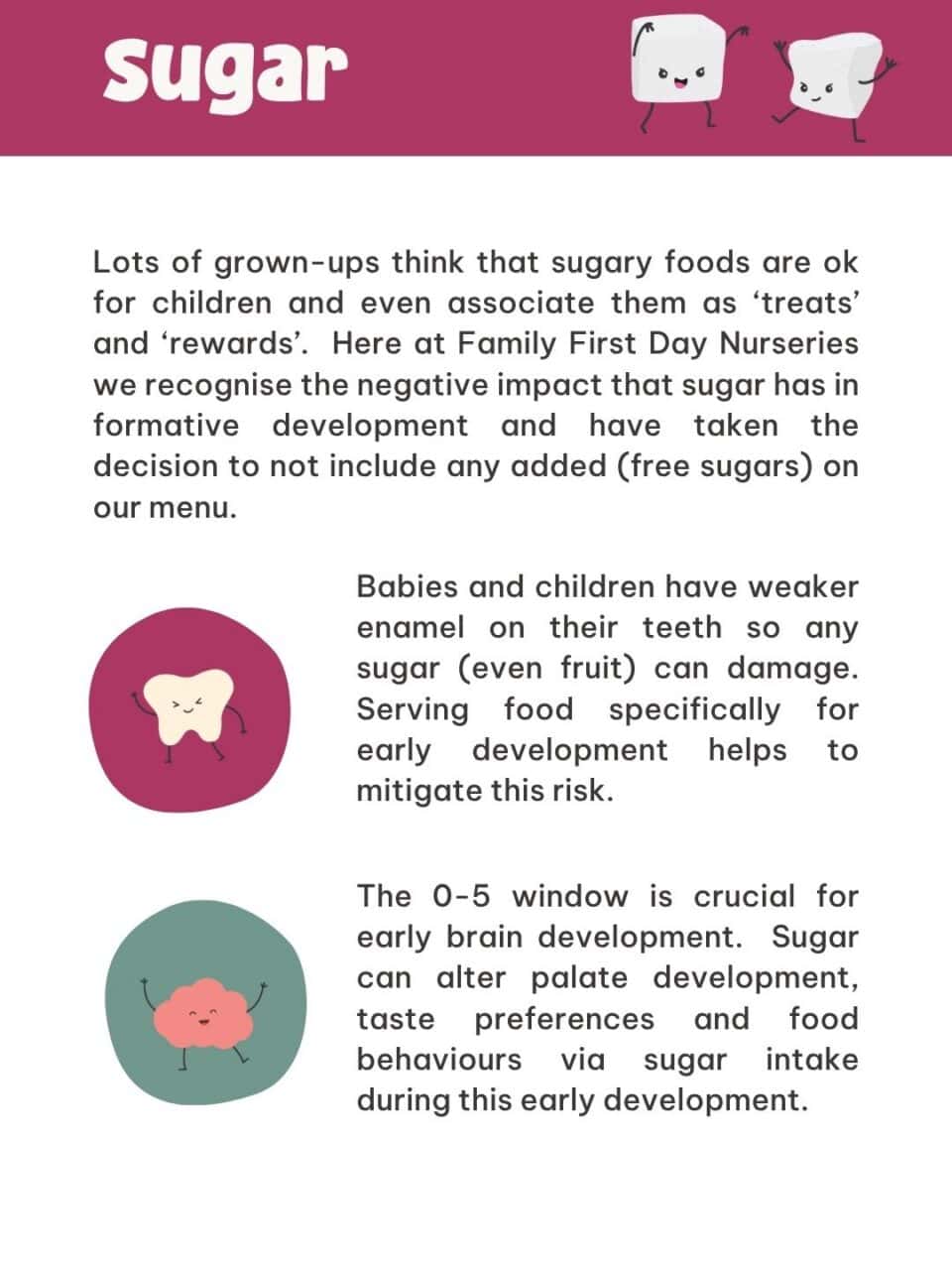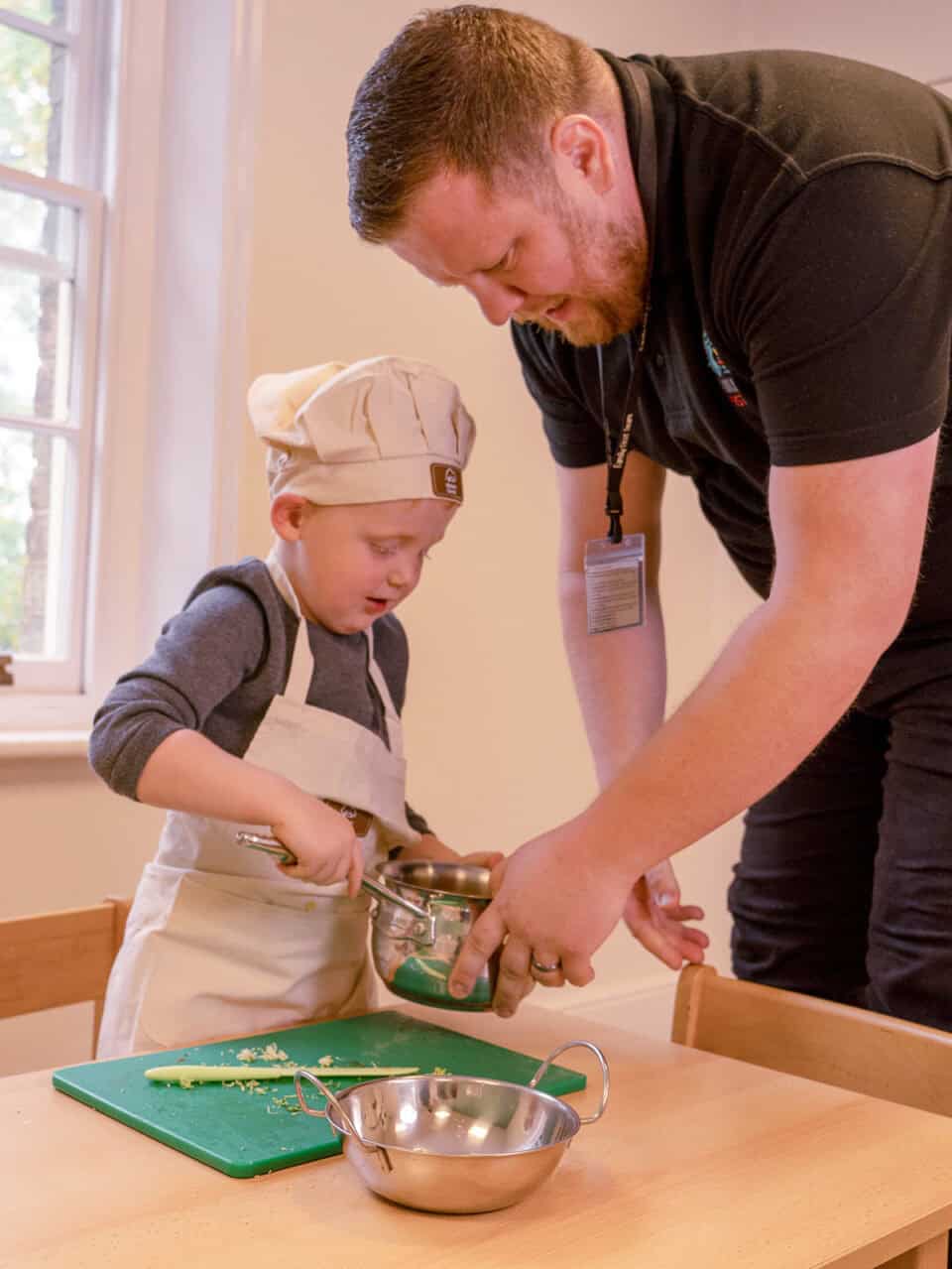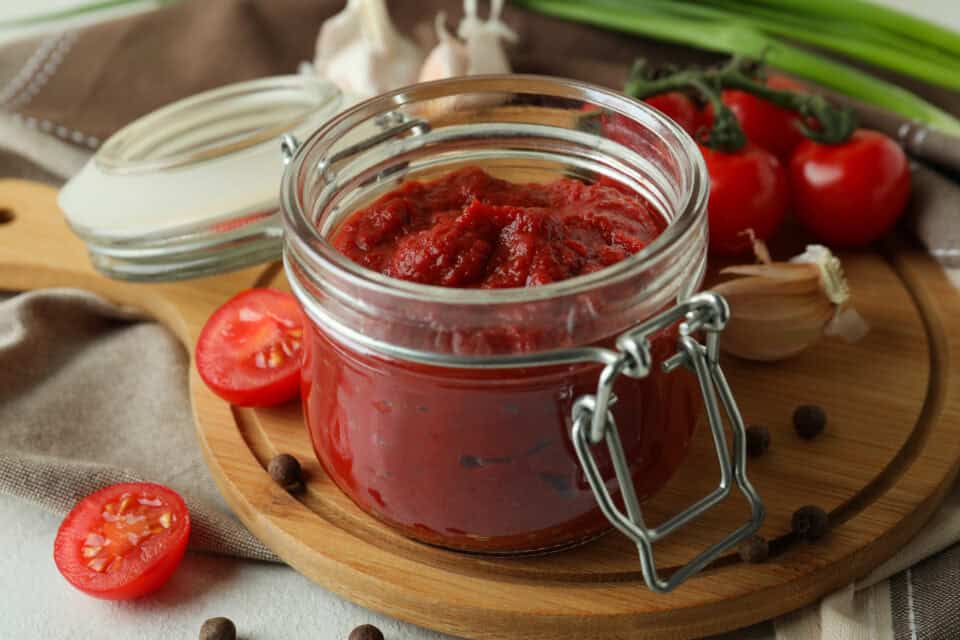There has been a big change in the EYFS this year with some explicit advice for settings to avoid sugar. We did not need to make this change as we were already sugar free, making this change two menus ago. We are proud to be ahead of a change that many settings are now having to catch up with us on.
All sauces used in our recipes are completely home-made and not from jars, this way we control the allergens and the nutritional profile of our recipes. Additionally, our head chef Sam is a whizz at utilising healthy fruits in our second courses (traditionally puddings) so that children never feel they are missing out on a sweet option.
We provided information specifically on our change to starters and desserts in our parent support document earlier this year.


You can find our new Autumn Winter Menu Guide here.
We have ensured that our teams have undertaken training with our Nutritional Therapist Louise on the impact that sugar has on children’s brain development, so they are all aware of the health impact.


The case against added sugar in early years
- Shaping taste preferences: Early exposure to sweet flavours trains the palate to expect sweetness, making less-sweet foods less attractive over time. Louise Mercieca emphasises that “nothing in childhood is momentary”. Habits and pathways set early can last a lifetime.
- Brain development: In the early years, children’s brains are developing rapidly (faster than at any other time in life). They are forming the networks that support learning, memory, emotion, and self-regulation. What children eat during this time has a powerful influence on how these areas grow and connect.
- Brain stimulation: When children consume too much added sugar, it can overstimulate the parts of the brain responsible for reward, emotion, and habit formation, while reducing the sensitivity of those that control learning, focus, and hunger regulation. This can make sweet foods feel extra “rewarding,” leading to stronger cravings, mood swings, and difficulty concentrating. Additionally, over time, high sugar intake can shape taste preferences and make naturally balanced foods seem less appealing, affecting both eating habits and emotional balance.
- Metabolic, dental, and overall health: High sugar intake affects children’s health in many different ways. In England, nearly one in four children have untreated tooth decay by age five, and rates of childhood obesity remain high, with around one in five children overweight or obese by the time they start school. Frequent spikes in blood sugar from sugary foods can disrupt energy balance and strain the body’s ability to manage insulin, increasing the risk of metabolic issues later in life.
- Consistency with EYFS guidance: As discussed in our previous blog ‘Supporting Children’s Healthy Eating and Immunity’, The Gov nutrition guidance urges settings to limit or avoid foods high in added sugar.

Supporting families: how to limit sugar at home
- Read labels: Spot hidden sugars (glucose, sucrose, syrup, maltose, dextrose).
- Home cooking and batch swaps: Bake muffins with no added sugar, replace sugary cereals with porridge and fruit, choose whole fruit over juice.
- Flavour enhancement: Use cinnamon, vanilla, nutmeg, citrus zest to boost taste without sugar.
- Moderation over elimination: Occasional foods are fine, but keep them occasional, not daily and try to avoid calling them ‘treats’
- Modelling: Children take cues from adults. If they see adults choosing healthier options, children will likely accept them too.
As Louise Mercieca says, it’s not just about the menu, “what is that interpretation of a healthy balanced diet?” and ensuring the why is understood by our teams and families alike.
In coming weeks, we’ll share some simple sugar-free recipes and tips to make this transition at home easier.
Healthier habits are built on many small, consistent changes and we’re so glad to be making them alongside you.
Be sure to check out our Q&A with our head chef and Nutritional Therapist, where they unpack more of the “why” behind each recipe and change.
